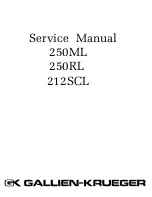
26
Maintenance-free Lead-acid and Lithium batteries
Maintenance-free Lead-acid and Lithium batteries
Cautions when using the battery
1.
Lead-acid batteries/lithium batteries have no memory effect. Please charge them up immediately after
each use, no matter how much power they left. If the battery is not charged for a long time, it may cause
the battery to be over-discharged and damaged, shortening the battery life or even making it impossible
to charge normally.
2.
U
sage temperature can’t be lower than -10°C nor higher than 50°C.
3.
It’s strictly forbidden to let the battery contact with any liquid. Do not immerse the battery in water or get it
wet. After the battery is exposed to water, a decomposition reaction may occur, which may cause battery
self-ignition or even cause an explosion.
4.
It is forbidden to use the battery when it has swelled, leaked, or the packaging is damaged.
5.
It is forbidden to disassemble the battery in any way or pierce the battery with a sharp object, so as not to
cause the battery to catch fire or even cause an explosion.
6.
The liquid inside the battery is highly corrosive. If it leaks, please do not touch it. If the internal liquid
splashes on human skin or eyes, please immediately rinse with clean water for at least 15 minutes before
seeking medical attention.
7.
It is forbidden to use wires or other metal objects to short-circuit the positive and negative electrodes of
the battery.
Cautions when charging the battery
1.
Lead-acid batteries/lithium batteries have no memory effect. Please charge them up immediately after
each use, no matter how much power they left. If the battery is not charged for a long time, it may cause
the battery to be over-discharged and damaged, shortening the battery life or even making it impossible
to charge normally.
2.
Please use the power supply specified by CHIAYO for charging.
3.
The CHIAYO amplifier has a protection circuit to prevent overcharging. Howe
ver, it’s recommended that
the charging time not exceed 12 hours. Please disconnect the power supply when fully charged.
4.
Charging temperature can’t be lower than 0°C nor higher than 40°C.
5.
When charging, please place it on the hard ground, such as cement, and there should be no flammable
or combustible materials around. Please pay attention to the charging process to prevent accidents.
6.
It will automatically stop charging when fully charged. After the battery is fully charged, it is recommended
to disconnect the amplifier from the power supply.
7.
When the power supply is not disconnected and the amplifier is not in use, if the battery is fully charged
and then recharged again soon after, it means that the battery is aging and cannot store power. Please
replace the battery to ensure enough time for operation.
Cautions when storing the battery
1.
Lead-acid batteries/lithium batteries have no memory effect. Please charge them up immediately after
each use, no matter how much power they left. If the battery is not charged for a long time, it may cause
the battery to be over-discharged and damaged, shortening the battery life or even making it impossible
to charge normally.
2.
Lithium batteries will automatically discharge in storage. If they are not charged for a long time, they will
over discharge that causes a decrease in capacity and damage to the batteries that can no longer be
charged normally. It should be fully charged at least once every 6 months.
3.
Lead-acid batteries will automatically discharge in storage. If they are not charged for a long time, they
will over discharge that causes a decrease in capacity and damage to the batteries that can no longer be
charged normally. It should be fully charged at least once every 3 months.
4.
Storage temperature can’t be lower than -10°C nor higher than 40°C.
Disposing the battery
Be sure to completely discharge the battery before placing it in the designated battery recycling bin.
Batteries contain dangerous chemicals. When disposing of old batteries, be sure to follow the local battery
recycling and disposal regulations, and it is strictly forbidden to put them in a trash can.


































